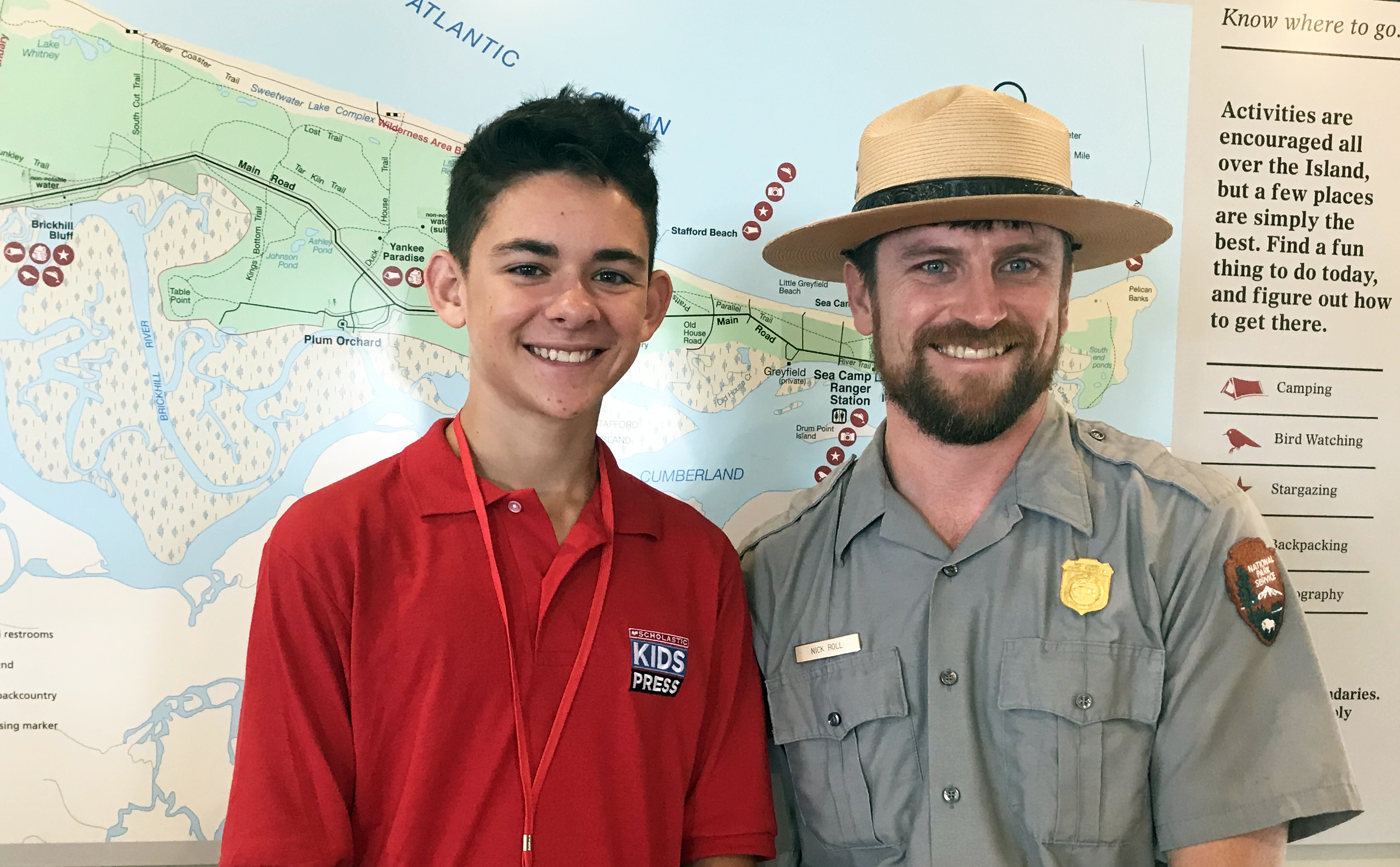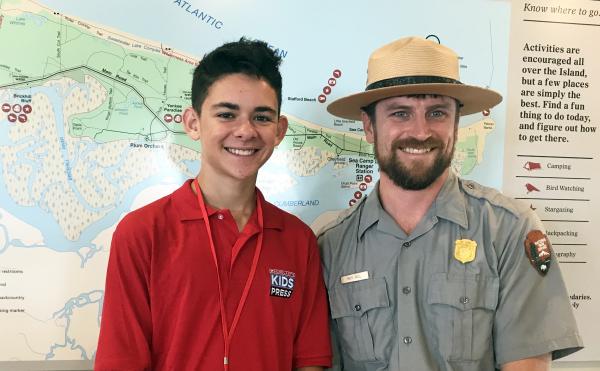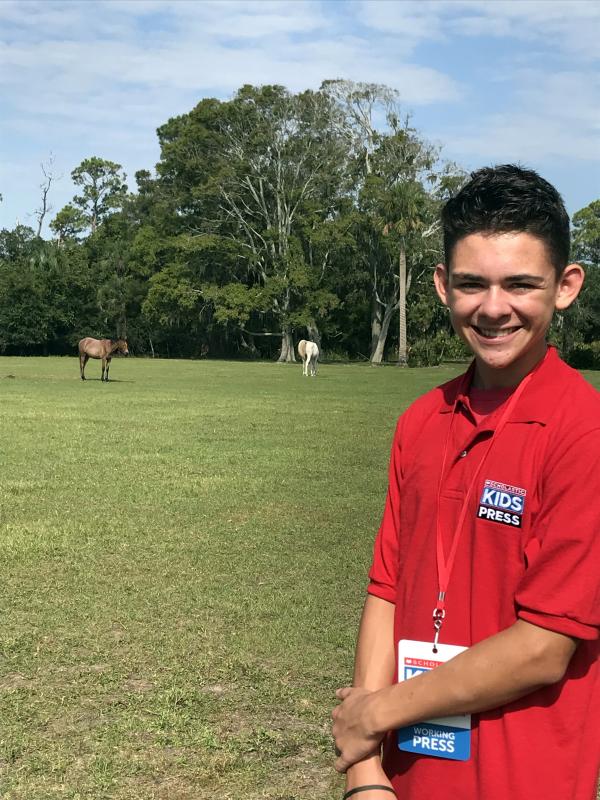KID REPORTERS’ NOTEBOOK
Riding Out the Storm


Bryce with Park Ranger Nick Roll at Cumberland Island National Seashore
For hundreds of years, horses have roamed Cumberland Island, Georgia’s largest and southernmost barrier island. The horses are feral, which means that they were once domesticated and are now living in a wild state without help from humans. Over the years, the horses have survived diseases, droughts, and everything Mother Nature has thrown at them.
Most recently, the horses rode out Hurricane Dorian. After stalling over the Bahamas for 48 hours in early September and causing extensive damage, the hurricane passed over the Southeastern coast of the United States.
The severity of the storm was enough to shut down the docks at Cumberland Island. Even after the winds passed, no one could get to the island.
How did this band of about 175 horses survive? “They tend to take care of themselves,” said Nick Roll, a park ranger on Cumberland Island, which is a National Park and National Seashore because of its unusual wildlife.
I spoke with Roll during a recent visit to the island, where I saw the horses roaming. Tourists can take a ferry and tour a museum and visitor center to learn more about the horses and the history of the area. No more than 300 people are allowed on the island at once.
“It was cool to see wild and untamed horses, but you have to be careful,” said 12-year-old Connor Sehmitt, who lives in Cherokee County, Georgia.
The horses may be used to seeing humans every day, but visitors shouldn’t get too close to them so as to avoid injury.

Wild horses have survived on Cumberland Island for centuries.
FINDING SHELTER IN A STORM
Before a hurricane, the horses may sense what’s coming. Still, they don’t change their habits until the stormy weather arrives. “They alter their movements and behavior during high winds and heavy rains, taking shelter in wooded areas and other spots that afford protection,” explained Doug Hoffman, a Cumberland Island biologist.
Once the storm passes, Hoffman said, “the horses continue with their normal activities—grazing, loafing, and traveling between feeding areas.”
The settlers on Cumberland Island are long gone, but the wild horses are still there, their numbers remaining constant. Hurricane Dorian wasn’t the first storm for many of these horses, and it likely won’t be the last.
